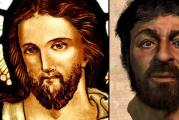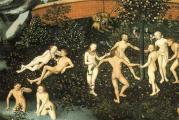An ideal utopian state. Problems of building a utopian state. Religions and Utopias
In the XVI century. in the intellectual life of European society, socialism is being strengthened as a social movement. Among the most prominent socialist writers was Thomas More (1478-1535). He was born in London to the family of a judge. More and studied law at Cambridge, but did not take the legal profession seriously, but wanted to become a monk. However, in 1504 he was elected to the Parliament, in 1505 he got married, thereby leaving the church service.
Thomas More has several works, but the most significant of them is Utopia (1516). In it, he outlined his point of view on private propertywhich he considered the source of inequality. "Wherever there is private property, the correct and successful course of state affairs is hardly possible." B / s feeds such bad human passions as greed, greed, the desire to increase their wealth, selfishness, etc. Therefore, Thomas More was for the destruction of the h / s. SocietyIs the result of a conspiracy of the rich, and the state - their simple tool. They use it to oppress the people to meet their material needs. This is done with the help of laws, government regulations, which are imposed on the people on behalf of the state.
The work is divided into two parts: in the first, Mor criticizes the existing socio-political order (the politics of war, the death penalty, royal despotism, depravity of the clergy, etc.) in the second - a statement of the order of the imaginary state of Utopia.
Utopia Is an imaginary country without h / s. All earth - public property. Each family is engaged in a certain craft; family craft organization constitutes the production structure of Utopian society. All citizens are required to serve labor service - to engage in agriculture. Working day - 6 hours. Utopians live in prosperity, which is achieved through the forced attraction of both men and women to work and the reduction of needs, the abandonment of luxury. However, in Utopia there is institution of slavery... Slaves wear shackles and do work unpleasant for the Utopians (slaughter cattle, take out sewage, etc.). prisoners of war, criminals serving sentences, as well as people sentenced to death in other states and ransomed by utopians became slaves. Slavery is not inherited, you can free yourself from it. The fight against crime is one of the main tasks of the state. State organization: Utopia has the structure of public power and the order of its formation. According to the form of government, Utopia does not belong to any one traditional form, it is most likely a "mixed" form of government. It is also not entirely clear what kind of utopian statehood is: federal or unitary.
Ticket 21. Boden's theory of state sovereignty.
(Synopsis in a notebook)
Jean Boden (1530 - 1596)
Born into a family of artisans, he received a provincial education and graduated from the University of Paris. Worked as Chief Prosecutor and Crown Prosecutor.
Major works:
6 books about the republic (state) (1576)
The Method of Easy Study of History (1566)
Boden is a progressive; denied the idea of \u200b\u200bthe "golden age" of antiquity; believed that only the real should be studied; supported the thesis of three types of law: divine, natural and human. He possessed a complex of an adviser, believed that history is cyclical and that without private property the state would collapse.
Basic ideas.
State sovereignty theory
Influence on the formation of the concept of the nation state
The ideal of a political leader and the concept of forms of government
Foundation of the theory of social contract
Citizens are divided into natural (from birth) and naturalized (acquired the right to be a citizen of the country by some agreement)
(Textbook)
Boden tried to theoretically substantiate how the royal power is capable of protecting and implementing national interests. According to Boden " the state - This is the management of many families and their property, carried out by sovereign power in accordance with the law. " A family - cell of the state.
The development of the problem of sovereignty is Boden's huge contribution to the development of political-theoretical knowledge. Sovereignty - absolute, permanent and unified power. That is, a power that manifests its power without restrictions, has invariably existed for a long time and does not allow any organs to separate powers.
5 hallmarks of sovereignty:
the publication of laws for all subjects and state institutions;
solution of issues of war and peace;
appointment of officers;
the action of the court of last instance as the highest;
pardon.
But the state's sovereign power must obey natural and divine laws, cannot interfere in family affairs, violate the principle of religious tolerance and collect taxes without the consent of its subjects. Likewise, the principle of the unity of the sovereignty of state power in theory is combined with division in practice. From Boden's point of view, the bearer of sovereign power temporarily and under certain conditions entrusts certain functions of power to officials who cannot do anything without the instructions of the sovereign.
Boden: "Sovereignty lies in the totality of free and intelligent beings that make up the people." The transfer of sovereign power is possible by the people themselves to one of the citizens or by the owner.
From the very moment of the creation of the first state, people have been obsessed with the idea of \u200b\u200bcreating an ideal society. A state in which there is no poverty, disease and inequality is such an old dream of an enlightened humanity that it is difficult to say when it first appeared. For such fantasies and projects at the end of the Middle Ages, a special term appeared - “utopia”. It was taken from the work of the same name by Thomas More - "The Golden Book, as useful as it is funny about best device state and the new island of Utopia ", in which" Utopia "is only the name of the island. For the first time. in the meaning of "model of an ideal society" this word is found in the travel book of the English priest Samuel Perches "Pilgrimage" (Pilgrimage, 1613). The adjective “utopian” is also used there for the first time. This became the specificity of models of the ideal world - when creating a utopia, real conditions and historical prerequisites were not taken into account. It is all the more interesting today to look at the projects of the past, which demonstrate the hopes of the most enlightened people of the past.

In most cultures and religions, there is a strong myth about the distant past, in which humanity lives in a primitive and simple state, but at the same time, being in a state of perfect happiness and satisfaction. The earliest written mentions of utopias are recorded in ancient heritage, for example, in the treatise "Golden Age" by the ancient Greek poet Hesiod, written in the 8th century BC. In a poetic treatise, the poet suggests that before the present era there were others, more perfect, the very first of which was the Golden Age - the time of harmony and universal brotherhood.
Religions and Utopias

Another of the most persistent and oldest utopias on earth is the dream of an afterlife and the ideal of paradise. Judaism, Christianity and Islam have a clear idea of \u200b\u200bhow things are "on the other side" and usually paradise is just an ideal society. The Garden of Eden has all the signs of utopias, including those that time has stopped there and no changes have occurred for thousands of years.
Spring peach blossom

Spring Peach Blossom - A fable by Chinese poet Tao Yuanming, written in 421 AD, describes an ideal society in which people lead an ideal existence in harmony with nature, without establishing any external contacts.
New harmony and utopian experiments

With the advances of the industrial revolution, the prospect of achieving utopia seemed real, especially in countries like the United States. The number of utopian communities increased dramatically in the late 1800s. Usually they were created on the basis of certain religious or ideological ideas. One such community was called the New Harmony and was founded by the Welsh industrialist Robert Owen. The community grew into a whole city, which in 1825 became a real center of achievement in the field of education and scientific research, but ultimately, a wrong economic approach destroyed a promising undertaking.
Utopian technologies

The scientific and technological utopias that flourished in the early 19th century gave rise to many fantasies about the amazing technology of the future. These utopian flying machines were depicted in a French postcard issued in the 1890s.
Ville radieuse

Ville Radieuse is an unrealized project designed by the French-Swiss architect Le Corbusier in 1924. Le Corbusier idealized the very idea of \u200b\u200ba city, filling it with high-rise residential buildings and an abundance of green spaces.
Broadacre city

In 1932, American architect Frank Lloyd Wright saw plans for Ville Radieuse and conceived his own utopia, with farmers and open spaces. In his utopia, he exploited the idea of \u200b\u200bmixing urban and agricultural spaces. Lloyd Wright's city was designed to house 10,000 people and used only the resources that it produced itself. The Broadacre was never built, but used the forward-looking principles of local food production and is still a source of inspiration for architects to this day.
Speer's Nazi Utopia

The architect Albert Speer was one of the closest friends of Adolf Hitler and, as the "first architect of the Third Reich", was developing the reconstruction of Berlin in a very futuristic way. The capital of Germany was to become a huge metropolis with a mass of skyscrapers, huge avenues and gigantic stadiums. The defeat of the Nazis in 1945 put an end to Speer's endeavors.
Buckminster Fuller's vision of a floating city

Buckminster Fuller, an inventor and architect, has developed a number of futuristic urban designs throughout his career. The most notable of these was the concept of a city that would sit on giant floating platforms in the ocean.
Seward's success

In 1968, oil was discovered in Prudhoe Bay in Alaska. This caused a real construction explosion in the northern state. "Seward's Success" is the working title of the domed city to be built near the field. The city's project included office space, retail space, residential areas, sports facilities, and a monorail system for the movement of residents.
Utopia is the unattainable idea of \u200b\u200bbuilding an ideal society where all the principles of social justice and equality are fully achieved.
What is UTOPIA - meaning, definition in simple words.
In simple words, Utopia is a dream of a perfect world, a place where all people live happily and comfortably. A branch of heaven on earth, so to speak.
Utopia. Origin of the term.
This concept first appeared in the work of Thomas More - “ A golden booklet, as useful as it is funny about the best state structure and the new island of Utopia"Or abbreviated:" Utopia". In this work, the vicious society, modern at that time, was directly opposed to the new ideal world. This topic interested many writers, which subsequently gave rise to a whole genre of fiction.
The concept and problems of a utopian world.
The concept of a utopian world implies an ideal society that undergoes continuous improvement in order to achieve the highest aggregate level of satisfaction for most people. It also assumes universal freedom and a certain level of equality, which should become part of the common good.
This is where the problems in the concept itself begin. As we know, all people are different, and everyone has their own understanding of the good. From which it follows that it is almost impossible to create a society in which everyone will be equally happy, taking into account the characteristics of each person.

The idea of \u200b\u200bcreating a utopian society is by and large a good and noble cause. But the arrangement of this happy world gives rise to a whole lot of questions to which there are no unambiguous answers.
- For which class should a utopian society be ideal? Poor, rich, middle class?
- Is it possible to make it perfect for all classes?
- What should be the perfect government?
- How can you make people perfect themselves?
- What should be a perfect education?
- What is the ideal standard of living? How to determine the sufficient level of wealth?
- What should be the control over society?
- What is freedom in the utopian sense? What should be the level of this freedom?
As you understand, you can ask a huge variety of similar questions, but you will not get a concrete answer to them.
There are many different ideas about what a utopian society could be. Some believe that in an ecological utopia, people should live in harmony with nature. Others rely on scientific and technological progress to ensure a happy and economically equitable existence for humanity.

Utopian state
(from gr utopos, lit. - a place that does not exist; English Utopian state) - an ancient social utopia about state structure, which would be the direct opposite of the social reality of the ancient slave society. Sources distinguish 2 main types of UG: a) abstract projects to improve the social order (both progressive and reactionary) and b) constructive social models. Relying on the idea of \u200b\u200ba “golden age”, on the redemptive mission of the sun god, on apocryphal predictions and prophecies, people expected that a happy age would come again, when there would be no wars, slavery, want and everyday hardships. These ideas gradually acquired an anti-Roman orientation (for example, the Apocalypse of Hystaspes, the books of the Jewish Sibyl). During periods of exacerbation of the class struggle of the free poor and slaves against the slave owners, this ideology began to play the role of a social and political program (for example, during the uprising of Aristonikos in Pergamum in 132-129 BC). Towards the end of the civil wars in the Roman Republic, the ruling class partially adopted the ideas about U.G., endowing its representative Augustus with the features of an exponent of social utopia. Thus, social utopia began to perform a restorative (protective) social function. Already in the IV century. BC. Plato in his work on the state drew a reactionary aristocratic ideal state (see: Political Science: Encyclopedic Dictionary. - M., 1993).
Big Law Dictionary... Academic.ru. 2010.
See what the "Utopian State" is in other dictionaries:
Utopian state - (from gr utopos, literally a place that does not exist; English Utopian state) an ancient social utopia about a state structure that would be the direct opposite of the social reality of the ancient slave society. Sources ... ... Encyclopedia of Law
Utopian state - a social utopia about states, a structure that would be the direct opposite of the social reality of the ancient slave owner. society. Sources distinguish two mains. type of U.G .: abstract projects (both progressive and ... ... Dictionary of antiquity
Renaissance culture in England - The culture of the Renaissance, with its ideological basis, philosophy and aesthetics of humanism, arises primarily on Italian soil. Unsurprisingly, Italian influence can be seen in all English Renaissance writers. But much more noticeable than ... ... The World History. Encyclopedia
Morris, William
Morris, William - William Morris eng. William Morris ... Wikipedia
William Morris - William Morris Date of birth: March 24, 1834 Date of death: October 3, 1896 ... Wikipedia
Morris W. - William Morris Date of birth: March 24, 1834 Date of death: October 3, 1896 ... Wikipedia
Morris William - William Morris Date of birth: March 24, 1834 Date of death: October 3, 1896 ... Wikipedia
Morris William - William Morris Date of birth: March 24, 1834 Date of death: October 3, 1896 ... Wikipedia
William Morris - Date of birth: March 24, 1834 Date of death: October 3, 1896 ... Wikipedia
Books
- Joseph Stalin. From World War II to the Cold War. 1939-1953, unspecified. Did Stalin really lead the country successfully during World War II? Without Stalin's efforts, would the Soviet Union likely have lost the war? Did Stalin strive for success ... Buy for 197 rubles
- The Forest Beyond the World, William Morris. The reader is invited to a rare novel, the first known novel in the world, written in the fantasy genre. Its author, William Morris - the famous English poet, poet, prose writer, artist, ... Buy for 144 rubles electronic book
- The Island of England as a Utopian Project of Social Anthropology. Book review: J. Barnes. England, England. M .: Eksmo; SPb .: Domino, 2012, D. Yu. Sivkov. The novel England, England by the English writer Julian Barnes describes a utopian corporate entity - a hybrid of a museum and a tourist park. Transnational corporation "Pitko" in ... Buy for 5.99 rubles electronic book
From the very moment of the creation of the first state, people have been obsessed with the idea of \u200b\u200bcreating an ideal society. A state in which there is no poverty, disease and inequality is such an old dream of an enlightened humanity that it is difficult to say when it first appeared. For such fantasies and projects at the end of the Middle Ages, a special term appeared - “utopia”. It was taken from the work of the same name by Thomas More - "The Golden Book, as useful as it is funny about the best structure of the state and the new island of Utopia", in which "Utopia" is only the name of the island. For the first time. in the meaning of "model of an ideal society" this word is found in the travel book of the English priest Samuel Perches "Pilgrimage" (Pilgrimage, 1613). The adjective “utopian” is also used there for the first time. This became the specificity of models of the ideal world - when creating a utopia, real conditions and historical prerequisites were not taken into account. It is all the more interesting today to look at projects of the past, which demonstrate the hopes of the most enlightened people of the past.

The birth of utopia
In most cultures and religions, there is a strong myth about the distant past, in which humanity lives in a primitive and simple state, but at the same time, being in a state of perfect happiness and satisfaction. The earliest written mentions of utopias are recorded in ancient heritage, for example, in the treatise "Golden Age" by the ancient Greek poet Hesiod, written in the 8th century BC. In a poetic treatise, the poet suggests that before the present era there were others, more perfect, the very first of which was the Golden Age - the time of harmony and universal brotherhood.

Religions and Utopias
Another of the most persistent and oldest utopias on earth is the dream of an afterlife and the ideal of paradise. Judaism, Christianity and Islam have a clear idea of \u200b\u200bhow things are "on the other side" and usually paradise is just an ideal society. The Garden of Eden has all the signs of utopias, including those that time has stopped there and no changes have occurred for thousands of years.

Spring peach blossom
Spring Peach Blossom - A fable by Chinese poet Tao Yuanming, written in 421 AD, describes an ideal society in which people lead an ideal existence in harmony with nature, without establishing any external contacts.

New harmony and utopian experiments
With the advances of the industrial revolution, the prospect of achieving utopia seemed real, especially in countries like the United States. The number of utopian communities increased dramatically in the late 1800s. Usually they were created on the basis of certain religious or ideological ideas. One such community was called the New Harmony and was founded by the Welsh industrialist Robert Owen. The community grew into a whole city, which in 1825 became a real center of achievement in the field of education and scientific research, but ultimately, a wrong economic approach destroyed a promising undertaking.

Utopian technologies
The scientific and technological utopias that flourished in the early 19th century gave rise to many fantasies about the amazing technology of the future. These utopian flying machines were depicted in a French postcard issued in the 1890s.

Ville radieuse
Ville Radieuse is an unrealized project designed by the French-Swiss architect Le Corbusier in 1924. Le Corbusier idealized the very idea of \u200b\u200ba city, filling it with high-rise residential buildings and an abundance of green spaces.

Broadacre city
In 1932, American architect Frank Lloyd Wright saw plans for Ville Radieuse and conceived his own utopia, with farmers and open spaces. In his utopia, he exploited the idea of \u200b\u200bmixing urban and agricultural spaces. Lloyd Wright's city was designed to house 10,000 people and used only the resources that it produced itself. The Broadacre was never built, but used the forward-looking principles of local food production and is still a source of inspiration for architects to this day.

Speer's Nazi Utopia
The architect Albert Speer was one of the closest friends of Adolf Hitler and, as the "first architect of the Third Reich", was developing the reconstruction of Berlin in a very futuristic way. The capital of Germany was to become a huge metropolis with a mass of skyscrapers, huge avenues and gigantic stadiums. The defeat of the Nazis in 1945 put an end to Speer's endeavors.

Buckminster Fuller's vision of a floating city
Buckminster Fuller, an inventor and architect, has developed a number of futuristic urban designs throughout his career. The most notable of these was the concept of a city that would sit on giant floating platforms in the ocean.

Seward's success
In 1968, oil was discovered in Prudhoe Bay in Alaska. This caused a real construction explosion in the northern state. "Seward's Success" is the working title of the domed city to be built near the field. The city's project included office space, retail space, residential areas, sports facilities, and a monorail system for the movement of residents.




